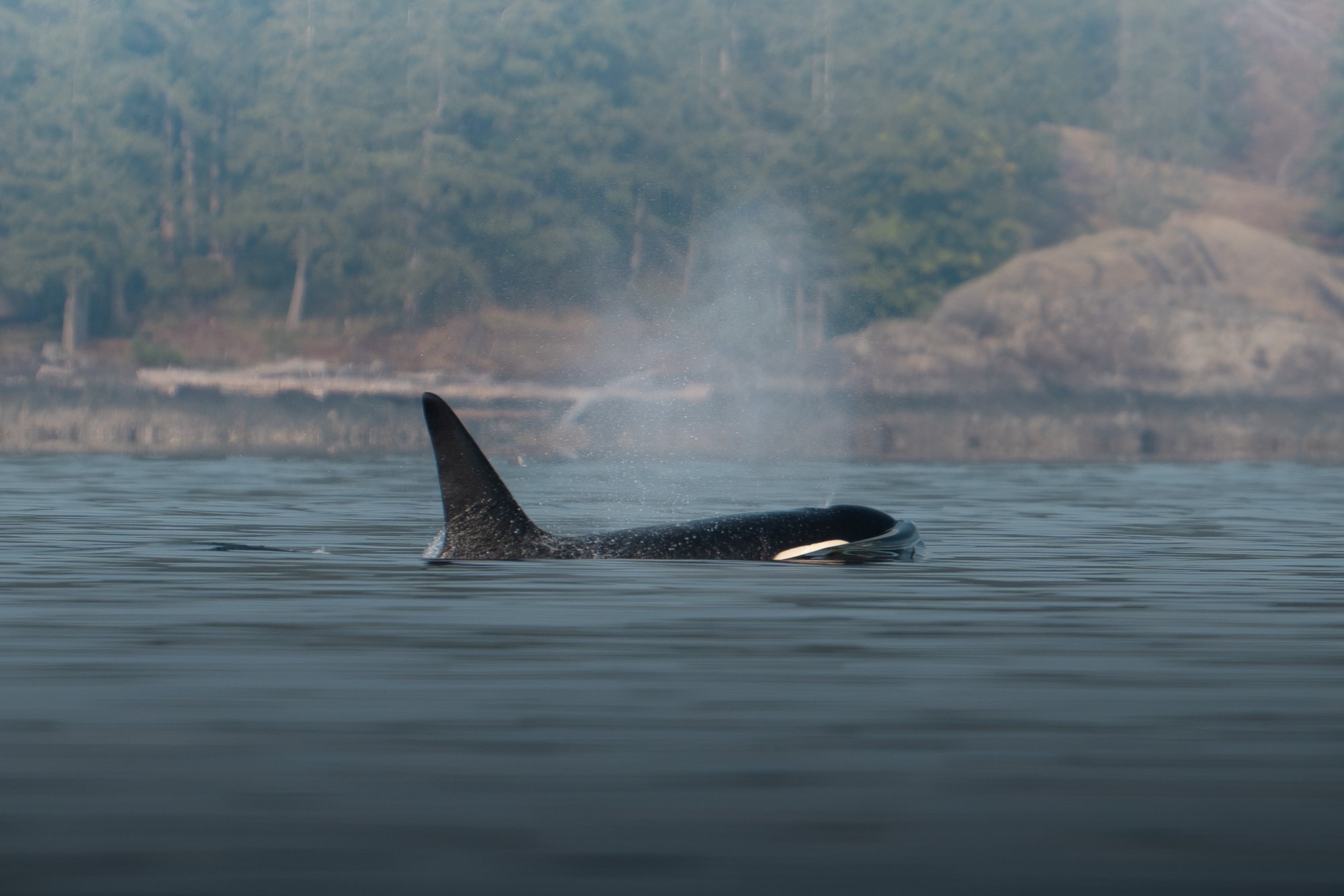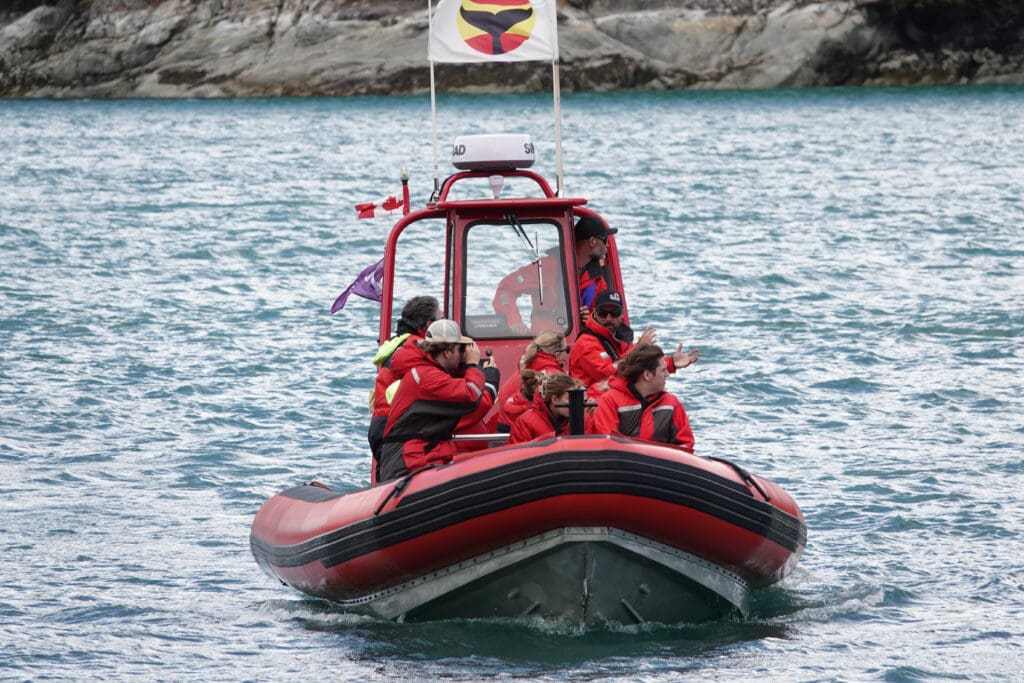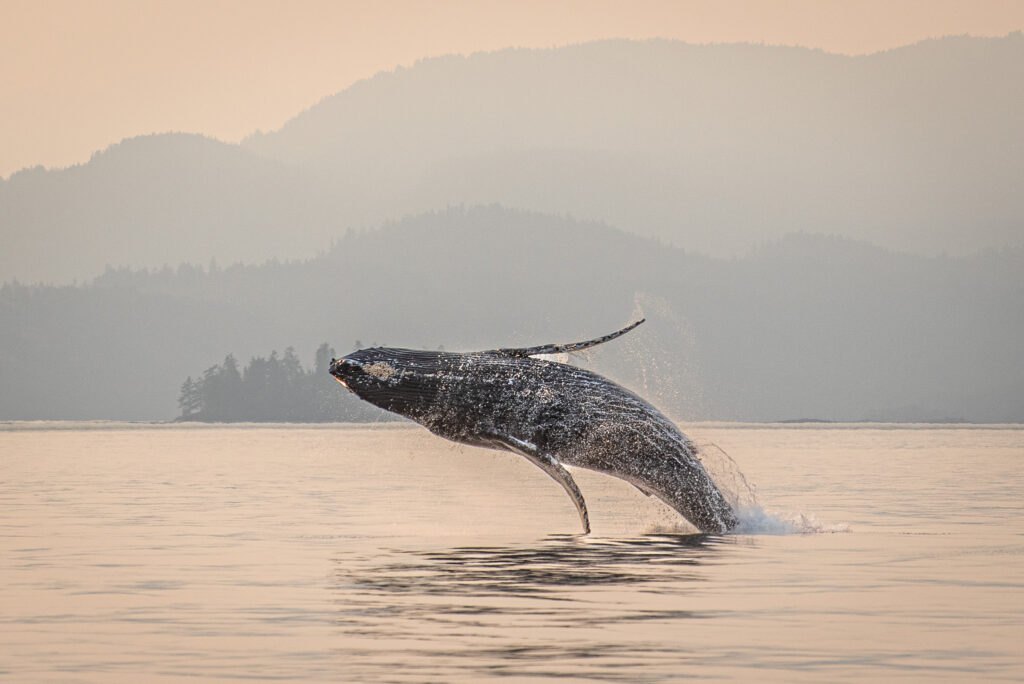Words by Maddie Lemke
Whale watching has gained popularity as a captivating recreational activity, allowing people to observe these majestic marine mammals in their natural environment. Observing wildlife can have many positive impacts, but if not done responsibly, it may do more harm than good.
In this blogpost we want to give an overview of positive and negative impacts of whale watching and help you make a decision to choose an ethical whale watching operator for your tour.

LET’S START WITH THE POSITIVES
There are many positive impacts that whale watching can have on the conservation of marine wildlife and the local community:
- Education and Conservation Awareness
Whale Watching is a great way to educate people about marine conservation issues. I am sure you would agree that if you have experienced marine wildlife in person, you are more likely to care more about it and take action to protect it.
- Economic Benefit for Local Communities
In small coastal communities, tourism is one of the most important economic sectors. The whale watching industry contributes a lot to the local economy through paying taxes and offering jobs to residents.
- Incentive for Protecting Whales
As the whale watching industry highly depends on having many happy whales around, one of their primary interests is to protect whales, to have long-term success. Apart from that, most people that operate or work for a whale watching company love marine mammals and have a personal interest in their wellbeing as well.
- Citizen Science
Whale watching has a huge impact on gathering data about marine mammals and often plays a large role in providing data for research in marine science. Some whale watching companies work closely with marine research organizations, sharing ID photos of whales as well as sightings. Researchers use this data to better understand the whales behavior and help with conservation efforts.
THERE IS ALWAYS A BUT…
However, there are numerous studies that have shown that cetaceans can be disturbed by (whale watching) boat traffic, resulting in behavioral changes. There is convincing evidence for some species that these can translate into population-level effects such as reduced reproductive rates.
Here are a few ways in which whale watching and boating in general can have a negative impact on marine mammals:
- Underwater Noise
Underwater noise can disturb resting animals, mask communications between whales and dolphins as well as make it difficult for certain species that use echolocation to find food.
- Getting Close to and Interacting with Wildlife
Getting close to marine wildlife and interacting with it habituates them to humans and boats which can be dangerous for the animals as it makes collisions with boats and entanglements in fishing gear more likely. Furthermore, wildlife can be disturbed resting or feeding.
- Staying with Wildlife for a Long Period of Time
When there are many boats staying with wildlife for long periods of time, wildlife does not get a break and is constantly under pressure. This can result in behavioral changes as mentioned above.
The introduction of guidelines or regulations for whale watching has been the most common method of trying to mitigate the impacts of boat-based whale watching. However, there is great variety in the comprehensiveness of guidelines, and even if operators have guidelines, compliance with them can be poor.
HOW TO FIND A RESPONSIBLE WHALE WATCHING OPERATOR
There are a few things you can look after to ensure you are choosing a responsible whale watching operator. Here are some easy tips to follow:
- Images Used for Marketing
Science-based regulations in Canada state that, depending on the species, you have to keep a distance of at least 100-200m from most marine mammals, in some cases even further. If a company is promoting their tours with images that show whales next to or close to a boat, they promote not following the regulations. Keeping a certain distance is important for ethical whale watching, as it significantly reduces the negative impacts of whale watching as mentioned above.
- Sustainability Efforts and Certifications
There can be a lot of green washing with certifications and sustainability efforts. It is still a good indicator when a company holds various certifications, and has a section about sustainability on their website. A carbon-neutral program is something to look out for as well.
- Memberships in Local Marine Conservation Organizations
Ethical whale watching operators are involved with local marine conservation organizations, working with them towards marine mammal stewardship. You can usually find a section on the whale watching operator’s website about partnerships or memberships if they have any.
- Read Reviews
Take a glance at the company’s reviews on Google or Tripadvisor. Look out for reviews that highlight ethical practices and respect for animals. Comments about very close encounters with whales are usually not a good sign, as they indicate not following the regulations to keep wildlife safe. However, close encounters can not always be avoided, so it might be worth checking if the company responded to the review, educating the guests that this is not what they are trying to go after.
LET’S GO ON AN ADVENTURE!
At Campbell River Whale Watching, a commitment to responsible and ethical whale watching is at the forefront of our operations. To minimize the disturbance to marine mammals, we strictly adhere to a set of guidelines designed to protect these majestic creatures. We are furthermore demonstrating our commitment through our own code of conduct, which includes measures such as a maximum approach speed of 7 knots within one kilometer, limiting interaction time to 30 minutes, and carefully managing boat numbers to minimize disturbance.
By implementing these measures, Campbell River Whale Watching is not only providing an unforgettable wildlife experience for visitors but also caring for the well-being and conservation of marine life in their natural habitat.
As advocates for responsible whale watching, we encourage you to make a positive impact by choosing operators dedicated to ethical practices. By choosing Campbell River Whale Watching, you contribute to the collective effort of ensuring a harmonious coexistence between humans and marine mammals.

Sources and further reading:
https://campbellriverwhalewatching.com/about-us/whalewatching-guidelines/
https://campbellriverwhalewatching.com/sustainability/
Parsons, E.C.M. (2012). The Negative Impacts of Whale Watching. Journal of Marine Biology, 5. doi:10.1155/2012/807294
International Whaling Commission. (n.d.). The Benefits And Impacts Of Whale Watching.
https://wwhandbook.iwc.int/en/responsible-management/benefits-and-impacts-of-whale-watching
Xplore Our Planet. (n.d.). Is Whale Watching Ethical? The Trick to Responsible Tours. https://xploreourplanet.com/sea/ethical-whale-watching



